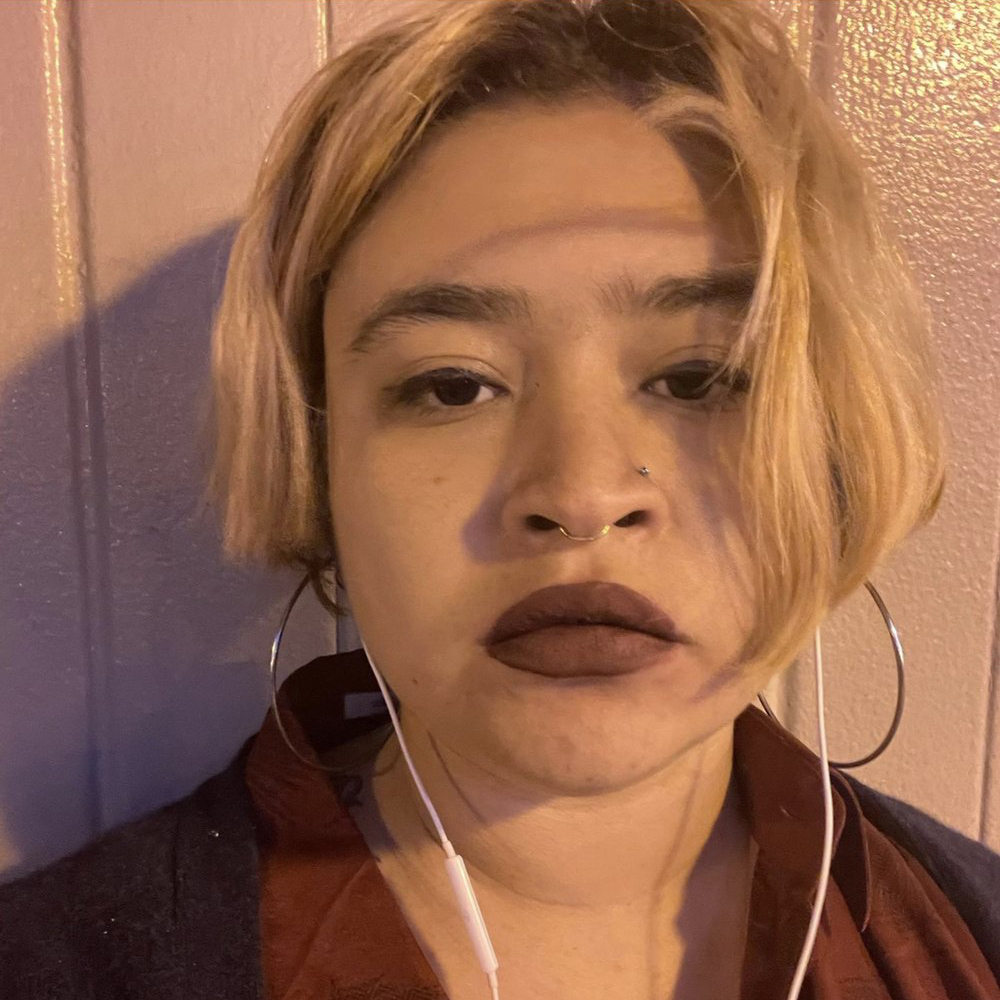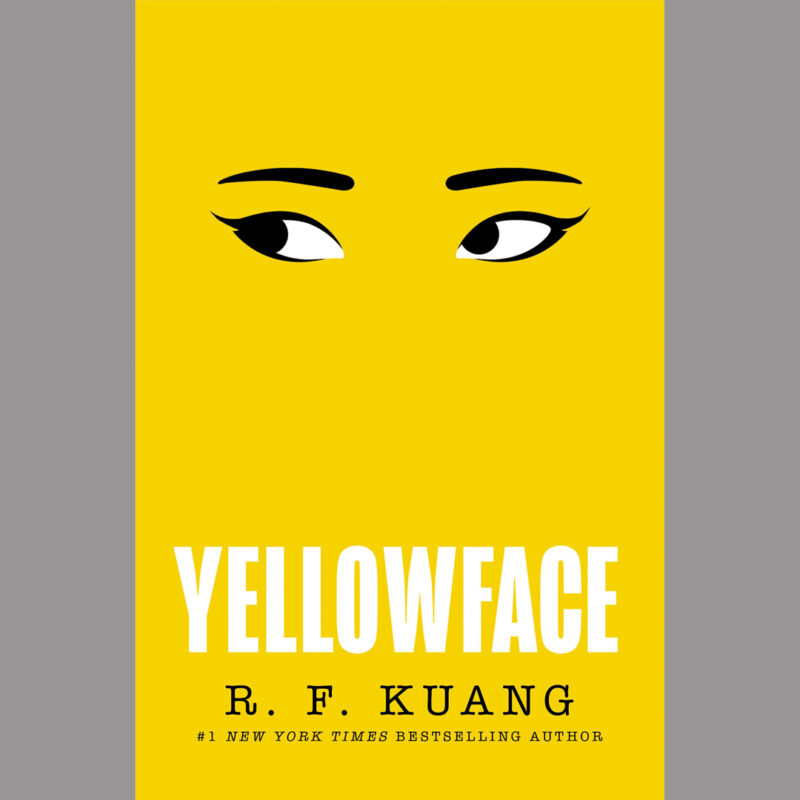USEREVIEW 114: Something Worthy
Joanna Acevedo reveals the ghosts and the guts beneath the “deceptively simple” surface of R.F. Kuang’s latest novel Yellowface (Harper Collins, 2023). Note: the last paragraph of the review contains potential spoilers.
ISBN 978-0-06325-083-3 | 336 pp | $37.00 CAD / 30.00 USD | BUY Here
#CAROUSELreviews
#USEREVIEWEDNESDAY
R.F. Kuang’s forthcoming novel, Yellowface, brings up complex and nuanced concepts of race and appropriation in the literary world, through a close examination of the publishing industry. Failed writer June Hayward tragically watches her much more successful friend, Athena Liu, die in her apartment, after a night of drinks and celebration, and decides to take Athena’s half-finished manuscript, The Last Front, which is a huge historical fiction text about Chinese migrant labour. June finishes the book, gives it to her agent, and the book instantly becomes a massive success. In the process of getting ready for publication, June is rebranded as Juniper Song, Song being her middle name, and is subtly encouraged to pass as racially ambiguous, for the sake of selling more books.
June is quickly accused of plagiarism after fans of the deceased Athena notice similarities between her novel and some of Athena’s prior work, and it becomes a Twitter scandal. Throughout the book, June’s appearance in the sphere of public opinion varies, but she does her best to weather these scandals. The book culminates in serious harassment from an Instagram account claiming to be Athena’s, but turns out to be a fired employee from her publisher, who June had a conflict with earlier in the novel. June is finally revealed to be a plagiarist, and effectively cancelled, but claims at the end of the novel that she will be back to grab back the spotlight, and this story will be hers again.
Storytelling, who has the right to tell which story, and how stories are told, are all major themes in this novel. June is questioned for being the one to tell a story about Chinese labour movements, and many questions arise about whether or not it’s acceptable to tell stories about a group of people who are not one’s own. Additionally, this novel plays with conflicting narratives — many of the characters find that they have different recollections of various events, and June is constantly rewriting the truth so that it fits her narrative more effectively.
One of the most interesting features of this novel is June’s delusion, as the novel follows her in the first person — she repeatedly claims that she has done nothing wrong, even when people bring up her missteps, and she dismisses her critics as being “trolls” or misinformed. We see this most clearly when she is confronted by Candice Lee, the publishing employee who was fired because of June’s actions, early in the novel, and comes back to harass her later, and force her to confess:
Ever since The Last Front came out, I have been victim to people like Candice and Diana and Adele: people who think that, just because they’re ‘oppressed’ and ‘marginalized,’ they can do or say whatever they want. That the world should put them on a pedestal and shower them with opportunities. That reverse racism is okay. That they can bully, harass, and humiliate people like me, just because I’m white, just because that counts as punching up, because in this day and age, women like me are the last acceptable target. Racism is bad, but you can still send death threats to Karens.
That June feels like a target is remarkable — she has garnered a six-figure advance from her publisher, as well as earned out on royalties, and when she initially has her first Twitter scandal, it actually creates a bump in sales, because people love controversy in the book community. Her obsessive need for the spotlight is what drives this novel; once she gets a taste of fame, she cannot let it go. June feels like a victim, in a publishing industry which, as this novel reminds us, tokenizes, exploits, or just plain ignores people of color. Athena Liu, for example, is repeatedly described as “knowing how to play the game,” meaning that she used her Asian identity to raise book sales, knowing that there would be an interest in her as a diversity token. Playing oppression Olympics is never productive, but June’s victimhood is one of the true ironies of this novel, and the tongue-in-cheekiness of this writing is one of the true pleasures of reading this book.
Another example of June’s tone deafness comes when she is under deadline to produce a new pitch for her agent, and decides to go to Chinatown in order to gather inspiration. She tries to strike up a conversation with an older Chinese waiter, and is kicked out of the restaurant by the manager for being insensitive and bothering the waitstaff.
“I don’t care,” she says curtly. “I don’t know what you’re trying to do here, but we want no part of it. Actually, I’m going to have to ask you to leave.”
She probably doesn’t have the right to kick me out. I’m not causing a public disturbance; I haven’t done anything illegal. All I did was make casual conversation with a waiter. I consider standing my ground, enforcing my rights as a customer, insisting that they call the police if they want to remove me. But I’d rather not go viral for yet another reason. I can imagine the YouTube title: “Chinatown Karen Insists She’s Not ICE.”
Yellowface has a deceptively simple premise — a friend steals from another friend. And it seems to address many of the structural inequities of the publishing industry, similar to Zakiya Dalila Harris’ The Other Black Girl or Raven Leilani’s Luster. But what sets this novel apart is that it is written from the perspective of a white person, and we see firsthand the mental gymnastics that one must do in order to continue to live a life of prejudice and false victimhood. We can see her cognitive dissonance at work, from seed to germination. It’s a fascinating display.
On a prose level, Yellowface is unimpressive, written in plain, unadorned English, but the psychological implications go far beyond language. June’s voice is likable, even as her actions become more and more frantic and irresponsible. She is ultimately a narrator readers will love to hate, and she becomes more and more warped in her quest for recognition — Kuang deliberately and carefully shows us how fame can distort people, as we see how fame has distorted June. Yellowface can be read as an indictment of the publishing industry itself, but it can also be read as a warning for anyone seeking literary fame and fortune. Full of Easter eggs about publishing, agents, MFAs and literary journals, it is a writers’ novel: for writers, about writers.
At the end of the novel, there’s a dash of Kuang’s background in science fiction, as Athena’s ghost seemingly haunts June, but it turns out we are in the real world after all. It’s almost disappointing to find out that the real Athena isn’t a ghost, haunting June for her indiscretions, because this would be such a climactic twist, given Kuang’s background. But Kuang leaves us on a disturbing note: June’s proclamation that she will continue to write, and continue to try to dominate the narrative. Even after being cancelled, she will come back stronger. It’s a disheartening message — white supremacy, and white feminism, apparently, is more resilient than we know. But Kuang may be right. There will always be a struggle between warring factions for the most airtime, whoever can yell the loudest. Just don’t let it be June Hayward, Kuang seems to be saying. Maybe it’s not inevitable, like it may seem. Maybe it will be someone worthy. Maybe it’ll be you.


